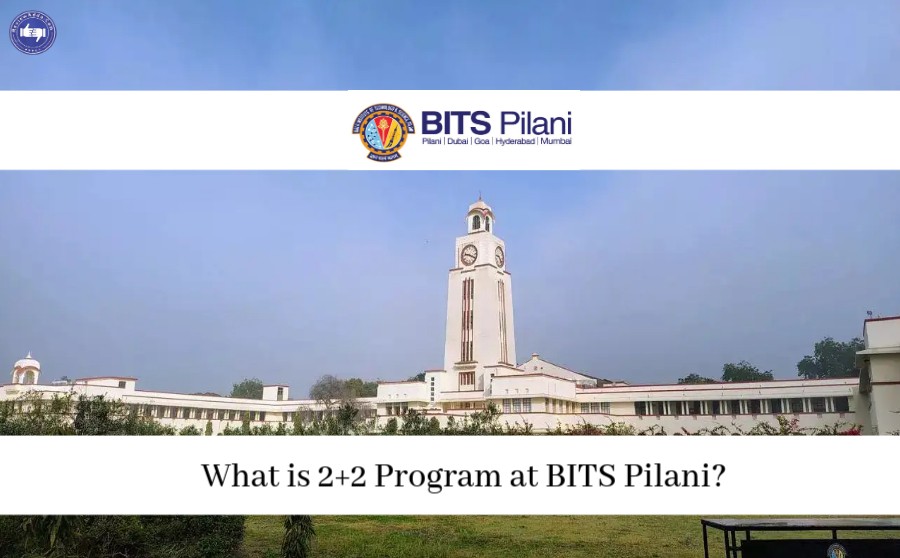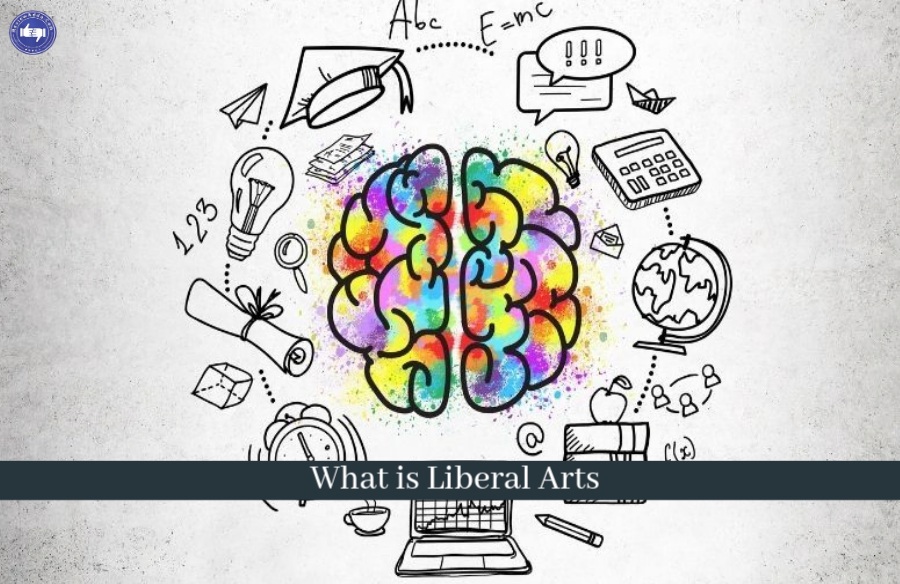Topic We Cover: Higher Education Accreditation Board in India
1. UGC (University Grants Commission)
2. AICTE (All India Council for Technical Education)
3. AIU (Association of Indian Universities)
4. ICAI(Institute of Chartered Accountants of India)
5. ICSI (Institute of Company Secretaries of India)
6. FTII (Film and Television Institute of India)
7. NAAC (National Assessment and Accreditation Council)
8. NBA (National Board of Accreditation)
9. NIRF (National Institutional Ranking Framework)
10. AIMA (All India Management Association)
11. BCI (Bar Council of India)
12. DCI (Dental Council of India)
13. DEC (Distance Education Council)
14. NIELIT & AKADOEACC
15. INC (Indian Nursing Council)
16. MCI (Medical Council of India)
17. NCTE (National Council for Teacher Education)
18. PCI (Pharmacy Council of India)
19. VCI (Veterinary Council of India)
20. NCHRH(National Council for Human Resource in Health)
While choosing a degree program, accreditation should be top on your mind as it is honored by many reputable institutions and organizations.An accredited degree is recognized for meeting specific educational standards, which have been set by an accrediting agency. Choosing an accredited degree ensures its acceptance by other recognized institutions and organizations and potential employers. AHigher education accreditation is a type of quality assurance process under which services and operations of post-secondary educational institutions or programs are evaluated by an external body to determine if applicable standards are met, accredited status is granted by the agency. In India accreditation for all universities is compulsory except for those created under the act of Parliament as without it no institution has right to award degrees and call themselves as University. Below is the list of top accreditation councils in India as per different field of study:
- UGC (University Grants Commission)
University Grants Commission (India) is statuary body set up by the Indian Union government in accordance with the UGC Act 1956 under Ministry of Human Resource Development and is charged with coordination, determination, and maintenance of standards of higher education. It provides recognition to universities in India and disburses funds to such recognized universities and colleges. It also advises the Central and State Governments on the measures which are necessary for the development of Higher Education. UGC was modeled after University Grants Committee of UK that was an advisory committee of the British government and advised on the distribution of grant funding amongst the British universities. Currently, UGC conducts NET (National Eligibility Test) for appointments of teachers in colleges and universities along with CSIR. Since 2009 NET qualification is mandatory for teaching at Graduation and Post-Graduation level. - AICTE (All India Council for Technical Education)
All India Council for Technical Education is the statutory body and a national-level council for technical education under Department of Higher Education, Ministry of Human Resource development that was first established in November 1945 as an advisory body. AICTE is responsible for proper planning and coordinated development of the technical education and management education system in India and also accredits postgraduate and graduate programs under specific categories. It grants approval for starting new technical institutions, the introduction of new courses and variation in intake capacity in technical institutions. Every year as per the direction of Ministry of Human Resource development (MHRD), Government of India AICTE conducts a national level entrance examination called CMAT (Common Management Admission Test). A score of CMAT is accepted by all AICTE-Approved institutions/University Department/Constituent Colleges/Affiliated Colleges. - AIU (Association of Indian Universities)
Association of Indian Universities was formed in 1925 with an idea of bringing together all the universities on a common platform emerged from the deliberations of a Conference of the Vice Chancellors of Universities convened by Lord Reading, the then Viceroy of India at Shimla. It is an organization and association of major universities that is based in Delhi that evaluates the courses, syllabi, standards and credits of foreign Universities pursued abroad and equates them in relation to various courses offered by Indian Universities. The AIU is mainly concerned with the recognition of Degrees/Diplomas awarded by the Universities in India, which are recognized by the University Grants Commission, New Delhi, and abroad for the purpose of admission to higher degree courses in Indian Universities. IT is also a registered society under the Societies Registration Act, 1860 with the membership of Indian Universities. It acts as a bureau of information exchange in higher education and brings out a number of useful publications, including the Universities Handbook, research papers and a weekly journal titled University News. It is also empowered to grant Associate Membership to universities of the neighboring countries of India. - ICAI(Institute of Chartered Accountants of India)
The Institute of Chartered Accounts of India is the national professional accounting body of India established on July 1, 1949. It was formed under the Chartered Accounts Act, 1949 to regulate the profession of Chartered accountancy in India. ICAI is the only licensing cum regulating body in India of financial audit and accountancy profession. It is also the second largest professional Accounting & Finance body in the world in terms of membership, after American Institute of Certified Public Accountants.Any member wanting to engage in public practice has to first apply for and obtain a Certificate of Practice from the Council of ICAI as only these candidates can act as auditors or certify documents required by various tax and financial regulatory authorities in India. - ICSI (Institute of Company Secretaries of India)
The Institute of Company Secretaries of India is only recognized professional body in India to develop and regulate the profession of Company Secretaries that was constituted under the Company Secretaries Act, 1980. It awards the certificate of bestowing the designation of Company Secretary(CS) to a candidate qualifying for the membership of the Institute. The ICSI functions under the jurisdiction of Ministry of Corporate Affairs. It registers students with 10+2 and graduate qualifications for Foundation and Executive Program of Company Secretaryship, respectively with course contents in Corporate and Economic Laws, Management, Accounting, Taxation and Finance disciplines. - FTII (Film and Television Institute of India)
The Film and Television Institute of India is an autonomous institute under the Ministry of Information and Broadcasting of the Government of India that is aided by the Central Government of India. It is also a member of the leading schools of film and television in the world known as the International Liaison Centre of Schools of Cinema and Television (CILECT). The FTII is registered under Societies’ Registration Act of 1860. IT also conducts FTII Entrance Examination for the candidates who wish to pursue their career in Film and television industry. - NAAC (National Assessment and Accreditation Council)
National Assessment and Accreditation Council is and autonomous body established by the University Commission of India (UGC) to assess and accredit institutions of higher education in the country. It lay special emphasis on evaluating the quality of higher education in India. NAAC has introduced new a methodology to assess and accredit the higher education institutions in India. In the first step, the institution is required to seek Institutional Eligibility for Quality Assessment (IEQA) and the second step is the assessment and accreditation of the institute under the grades A, B, C for accredited institutions: and D for those which are not accredited. NAAC has identified seven criteria for assessment procedure: Curricular aspects, Teaching-learning and evaluation, Research, Consultancy and extension, Infrastructure and learning resources, Student support and progression, Governance and leadership and Innovative practices.
 Get Updated Review ( Voice Based Alumni Feeback)
Get Updated Review ( Voice Based Alumni Feeback)
-
 Check Review (Alumni Feedback) - Lovely Professional University - [LPU] – Click Here
Check Review (Alumni Feedback) - Lovely Professional University - [LPU] – Click Here -
 Check Review (Alumni Feedback) - Amity University – Click Here
Check Review (Alumni Feedback) - Amity University – Click Here -
 Check Review (Alumni Feedback) - Pacific University – Click Here
Check Review (Alumni Feedback) - Pacific University – Click Here -
 Check Review (Alumni Feedback) - SRM University Sonipat – Click Here
Check Review (Alumni Feedback) - SRM University Sonipat – Click Here -
 Check Review (Alumni Feedback) - Ansal University – Click Here
Check Review (Alumni Feedback) - Ansal University – Click Here
- NBA (National Board of Accreditation)
National Board of Accreditation, India was established by AICTE as an autonomous body under section 10(u) of AICTE act, 1994 for periodic evaluations of technical institutions & programs basis according to specified norms and standards as recommended by AICTE council. It is the only authorized body in India entrusted with the task of undertaking accreditation of technical education programs. From 7th January 2010, NBA came into existence as an autonomous body with the objective of Assurance of Quality and Relevance of Education, especially of the programs in professional and technical disciplines, i.e., Engineering and Technology, Management, Architecture, Pharmacy and Hospitality, through the mechanism of accreditation of programs offered by technical institutions. It has received 2 awards: Golden Peacock Eco Innovation Award 2013, for the eNBA Project and Best Education Project - Silver Award. - NIRF (National Institutional Ranking Framework)
National Institutional Ranking Framework is a methodology adopted by the Ministry of Human Resource development (MHRD), Government of India, to rank all institutions of higher education in India. NIRF was set up to identify the broad parameters for ranking various universities and institutions that are: Teaching, learning and resources, Research and professional practices, graduation outcomes, outreach and inclusivity and perception. - AIMA (All India Management Association)
With the active support of Government of India and Industry All India Management Association was created in 1957 as an apex body of professional management. It is a non-lobbying organization, working closely with industry, Government, academia and students to further the cause of the management profession in India.It is a federation of Local Management Associations (LMAs). AIMA also brings to the Indian managers, the best management practices and techniques through numerous foreign collaborations with professional bodies and institutions. - BCI (Bar Council of India)
The Bar Council of India is a statutory body established under the section 4 of advocates Act 1961 that regulates the legal practice and legal education in India. It also grants recognition to Universities whose degree in law will serve as qualification for enrollment as an advocate. It performs certain representative functions by protecting the rights, privileges, and interests of advocates and through the creation of funds for providing financial assistance to organize welfare schemes for them. It prescribes standards of professional conduct, etiquettes, and exercises disciplinary jurisdiction over the bar. To practice law, it is mandatory to pass All India Bar Examination that is conducted by BCI since April 10, 2010. This entrance examination is held biannually in which a candidate can appear any number of times. After clearing this entrance examination every advocate is entitled to a Certified Practice of Law throughout India. - DCI (Dental Council of India)
The Dental Council of India is a statutory body incorporated under The Dentist Act, 1948 to regulatedental education and the profession throughout India that is financed by the Ministry of Health and Family Welfare and through the local state dental councils. Main objectives of DCI is to maintain uniform standards of dental education in India, regulate the curriculum in the training of dentists, dental hygienists, and dental mechanics and to regulate the level of examinations and qualifications. As per a bill introduced in the Parliament of India, Medical regulatory bodies like The Dental Council of India, Nursing Council of India and Pharmacy Council of India are proposed to dissolve and replaced with a common Statutory Body known as National Commission for Human resources for Health. - DEC (Distance Education Council)
Distance Education Council is responsible for the promotion and coordination of the Open University and distance education system and for determination of its standards based in New Delhi, India. It was constituted under the Indira Gandhi National Open University Act, 1985. It tries to promote an innovative system of University level education that has flexible and open methods and pace of learning, combination of courses, eligibility for enrolment and age of entry. It also advises the State Government, universities, and other concerned agencies on their proposals to set up open universities or to introduce programs of distance education.It appoints Review Committees periodically, which study and assess the performance of the open universities/distance education institutions in its network. But in June 2013, DEC was taken over by the University Grants Commission by establishing Distance Education Bureau (DEB) to govern the distance education programs in India. - NIELIT (National Institute of Electronics & Information Technology) AKADOEACC (Department of Electronics and Accreditation of Computer Courses)
National Institute of Electronics & Information Technology (NIELIT), earlier known as the DOEACC Society, is an autonomous scientific society under the administrative control of Ministry of Electronics and Information Technology of the Government of India.It is also one of the National Examination Body, which accredits institutes/organizations for conducting courses in IT in the non-formal sector. At present, it has 35 offices with its headquarters in New Delhi. It has acquired very good expertise in IT training, through its wide repertoire of causes, ranging from O Level (Foundation), A Level (Advance Diploma), B Level (MCA equivalent), C Level (M-Tech level), IT literacy courses such as CCC (Course on Computer Concept), BCC (Basic Computer Course) and other such long term and short term course in the non-formal sector like courses on Information Security, ITeS-BPO(Customer Care/Banking), Computer Hardware Maintenance (CHM-O/A level), Bio-Informatics(BI-O/A/B level), ESDM etc., besides, high end courses offered by NIELIT Centers at Post-Graduate level (M.Tech) in Electronics Design & Technology, Embedded Systems etc. which are not normally offered by Universities/Institutions in the formal sector, in association with the respective state Universities. - INC (Indian Nursing Council)
The Indian Nursing Council is a national regulatory body for nurses and nurse education in India formed by the Central Government under section 3(1) of the Indian Nursing Council Act, 1947 of the Indian parliament. Their function is to establish and monitor a uniform standard of nursing education for nurse midwife, Auxiliary Nurse- Midwives and health visitors by doing an inspection of the institutions, promote research in nursing and to improve the quality of nursing education. As per a bill introduced in the Parliament of India, Medical regulatory bodies like The Dental Council of India, Nursing Council of India and Pharmacy Council of India are proposed to dissolve and replaced with a common Statutory Body known as National Commission for Human resources for Health. - MCI (Medical Council of India)
The Medical Council of India is a statutory body for establishing uniform and high standards of medical education in India. It grants recognition of medical qualifications, gives accreditation to medical schools, grants registration to medical practitioners, and monitors medical practice in India. But recently states has approved the proposal of NITI (National Institution for Transforming India) Aayog to replace Medical Council of India (MCI) with a statutory body known as the National Medical Commission.As per a bill introduced in the Parliament of India, Medical regulatory bodies like The Dental Council of India, Nursing Council of India and Pharmacy Council of India are proposed to dissolve and replaced with a common Statutory Body known as National Commission for Human resources for Health. - NCTE (National Council for Teacher Education)
National Council for Teacher Education is a statutory body of Indian government set up under the National Council for Teacher Education Act in 1995 to formally oversee standards, procedures and processes in the Indian education system. The main objective of the NCTE is to achieve planned and coordinated development of the teacher education system throughout the country, the regulation and proper maintenance of Norms and Standards in the teacher education system and for matters connected therewith. - PCI (Pharmacy Council of India)
Pharmacy Council of India is the statutory body of government of India constituted under the Pharmacy Act, 1948 on 4 March 1948. It is constituted by central government every five years.The objectives of the PCI is to regulate the pharmacy education in the Country for the purpose of registration as a pharmacist under the Pharmacy Act and regulate the profession and practice of pharmacy. Recently as per a bill introduced in the Parliament of India, Medical regulatory bodies like The Dental Council of India, Nursing Council of India and Pharmacy Council of India are proposed to dissolve and replaced with a common Statutory Body known as National Commission for Human resources for Health. - VCI (Veterinary Council of India)
Established under the Ministry of Agriculture of the Government of India in 1984, the Veterinary Council of India is a statutory body which regulates veterinary practice in India. The council is governed by the Indian Veterinary Council Act, 1984 and receives 100% grants-in-aid from the Department of Animal Husbandry & Dairying, Ministry of Agriculture of Government of India under a Plan Scheme Namely Professional Efficiency Development for undertaking the activities of the Council. - NCHRH(National Council for Human Resource in Health)
To regulate health education there will be a new regulatory agency in India by enforcement of a new bill being tabled in the Parliament of India.The Ministry of Health and Family Welfare has approved the revised draft for the proposed NCHRH Bill which will be an overarching body for the health sector. There will be a common MBBS entrance test (single PMT)National Eligibility and Entrance Test -UG replacing the over 17 All India Pre Medical Test(PMTs) conducted all over the country for over 35,000 undergraduate seats.As per a bill introduced in the Parliament of India, Medical regulatory bodies like The Dental Council of India, Nursing Council of India and Pharmacy Council of India are proposed to dissolve and replaced with a common Statutory Body known as National Commission for Human resources for Health.






